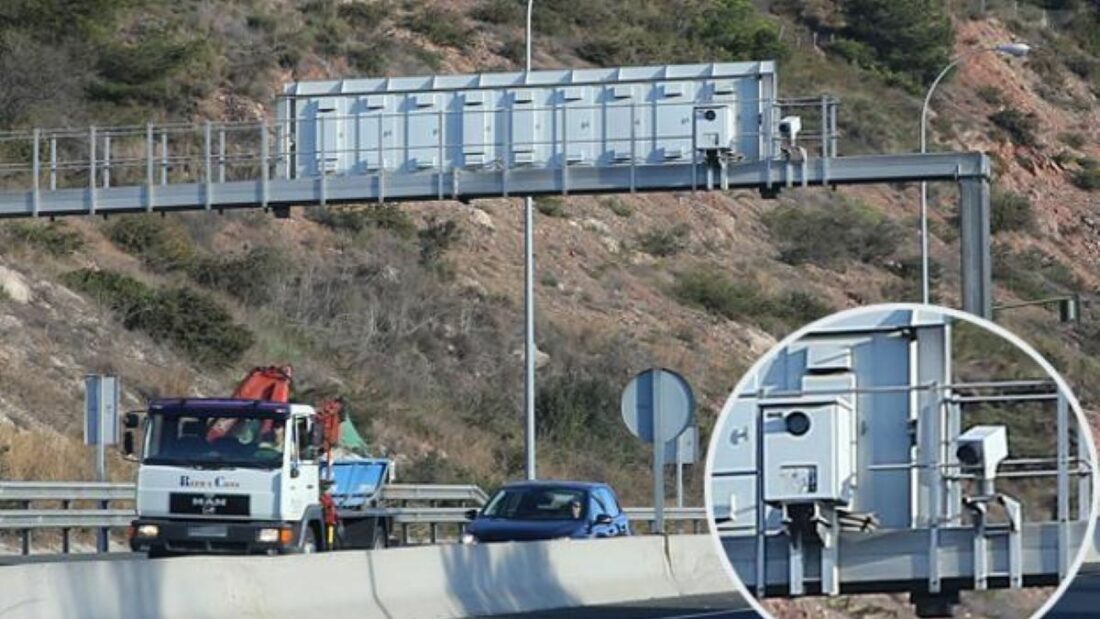Introduction to the Dispute Over Traffic Restrictions Enforcement
In recent years, the traffic authority known as the Dirección General de Tráfico (DGT) has faced growing criticism for its method of penalizing truck drivers during designated traffic restriction periods. The main point of contention revolves around the indiscriminate use of automated camera systems to issue fines without adequately verifying if the vehicles qualify for exemptions.
The Framework for Traffic Restrictions and Exemptions
The DGT annually establishes a calendar setting limits on truck circulation during peak travel periods, such as summer vacations, Easter, and public holidays. These restrictions aim to ensure smooth traffic flow and enhance road safety during times when vehicle volumes surge. However, not all trucks fall under these restrictions. Vehicles transporting perishable goods, live animals, or those providing roadside assistance are typically exempted, given the nature of their cargo and services.
Exempted Vehicles and the Reality of Enforcement
Interestingly, despite these clearly defined exceptions, enforcement practices have not consistently reflected these rules. Official camera installations on roadways have been programmed to penalize any truck passing through restricted areas during the ban periods. Crucially, the cameras lack the capacity to determine if a vehicle is exempt from the restrictions. This has led to widespread fines imposed on transporters who, by law, should be allowed to operate freely during these times.
The Consequences of Automated and Indiscriminate Fines
Transport companies and drivers affected by these fines face a burdensome process. They are compelled to file appeals to prove their trucks meet exemption criteria, which demands time, documentation, and often legal support. Failure to respond within deadlines or loss of notifications means drivers must pay penalties unjustly. Some even receive multiple fines on the same day, issued from different control points, amplifying the financial burden without just cause.
| Aspetto | Impact on Transporters |
|---|---|
| Automated Camera Enforcement | Lack of distinction between exempt and non-exempt trucks, resulting in wrongful fines |
| Appeal Process | Time-consuming, potentially costly, and complex; risk of losing rights without submission |
| Multiple Fines | Duplicate penalties from separate cameras for the same day’s journey |
| Legal Concerns | Alleged violation of the legal presumption of innocence, flipping burden of proof onto drivers |
Legal and Ethical Questions Raised
The Federation of National Transport Associations (FENADISMER) has formally challenged DGT’s approach, highlighting the infringement of the principle of presumed innocence. This principle, fundamental in sanctioning laws, ensures that alleged offenders are considered innocent until proven guilty. By relying solely on automated photographs without post-verification, the system assumes guilt first, forcing transporters to prove their compliance. This inverted logic is unlike other violations such as speeding or traffic signals, where photographic evidence clearly shows the infraction.
Automated Systems and the Limits of Technology in Enforcement
While automated enforcement tools bring efficiency and scale to traffic regulation, they fall short in nuanced cases like these. A simple photograph cannot confirm the legal exemption status of a vehicle, exposing the practical gaps when technology overtakes human judgment. This scenario reflects broader challenges in implementing automated surveillance in transport logistics where cargo characteristics and shipment specifics dictate exemptions.
Impatto sul settore della logistica
This enforcement controversy doesn’t just stir debate in legal circles—it ripples through the logistics and freight industries. When transporters face unpredictable fines or legal uncertainty, operational costs rise and trust in regulatory frameworks diminishes. Truckers may be forced to reroute or delay shipments, affecting supply chains, delivery times, and customer satisfaction. Reliable freight movement relies on transparent and fair regulations, and automated penalties that disrupt this balance can cause inefficiency and financial loss.
The Burden on Freight and Transport Logistics
- Disruptions in delivery schedules caused by unwarranted fines
- Increased administrative overhead for appeals and compliance tracking
- Potential degradation of trust between carriers and regulatory bodies
- Cost inflation impacting pricing models and competitiveness
Calls for Reform and Oversight
FENADISMER’s appeal to the Defensor del Pueblo (Ombudsman) seeks to end these practices and enforce a system respectful of legal safeguards. They urge the DGT to integrate verification procedures ensuring that cameras do not automatically penalize exempt trucks. This would restore the balance between maintaining traffic safety and protecting transporters’ rights.
Reflections on the Real-World Experience vs. Reviews
While widespread complaints and formal denunciations shed light on systemic issues, nothing replaces firsthand experience. For those involved in international and domestic cargo, proper assessment comes from navigating these challenges directly and understanding the nuances of transport regulations in practice. Platforms like GetTransport.com empower users by offering affordable, global cargo transportation options that emphasize transparency and reliability, helping freight operators avoid costly penalties and maintain smooth operations.
Through GetTransport.com’s extensive network, shippers and transporters can find tailored solutions for office and house moves, cargo delivery, and large item transport including vehicles and bulky goods—all at competitive prices. The ease and clarity of the service help mitigate some common logistical headaches related to regulatory compliance and shipment planning. Prenota il tuo viaggio a GetTransport.com and step into hassle-free transport today.
Conclusion: Balancing Enforcement with Practical Logistics Needs
The issue of indiscriminate camera fines for exempt trucks during restriction days highlights crucial challenges in traffic management and legal balance. It stresses the importance of integrating technology with nuanced human oversight so enforcement remains fair and effective. Such controversies underscore the critical role of transparent, efficient logistics chains and the need for carriers to navigate regulatory landscapes prudently.
GetTransport.com stands out as a platform aligning with these needs by offering cost-efficient, dependable freight, shipment, and logistics services worldwide. It provides a straightforward way to handle transport and distribution without falling into unexpected legal traps. In an industry where smooth delivery and compliance are keys to success, leveraging such modern solutions can make all the difference for reliable, hassle-free haulage and courier operations.

 Esame delle Misure Sanzionatorie Automatizzate della DGT sugli Autotrasportatori Durante le Restrizioni Regolamentari">
Esame delle Misure Sanzionatorie Automatizzate della DGT sugli Autotrasportatori Durante le Restrizioni Regolamentari">